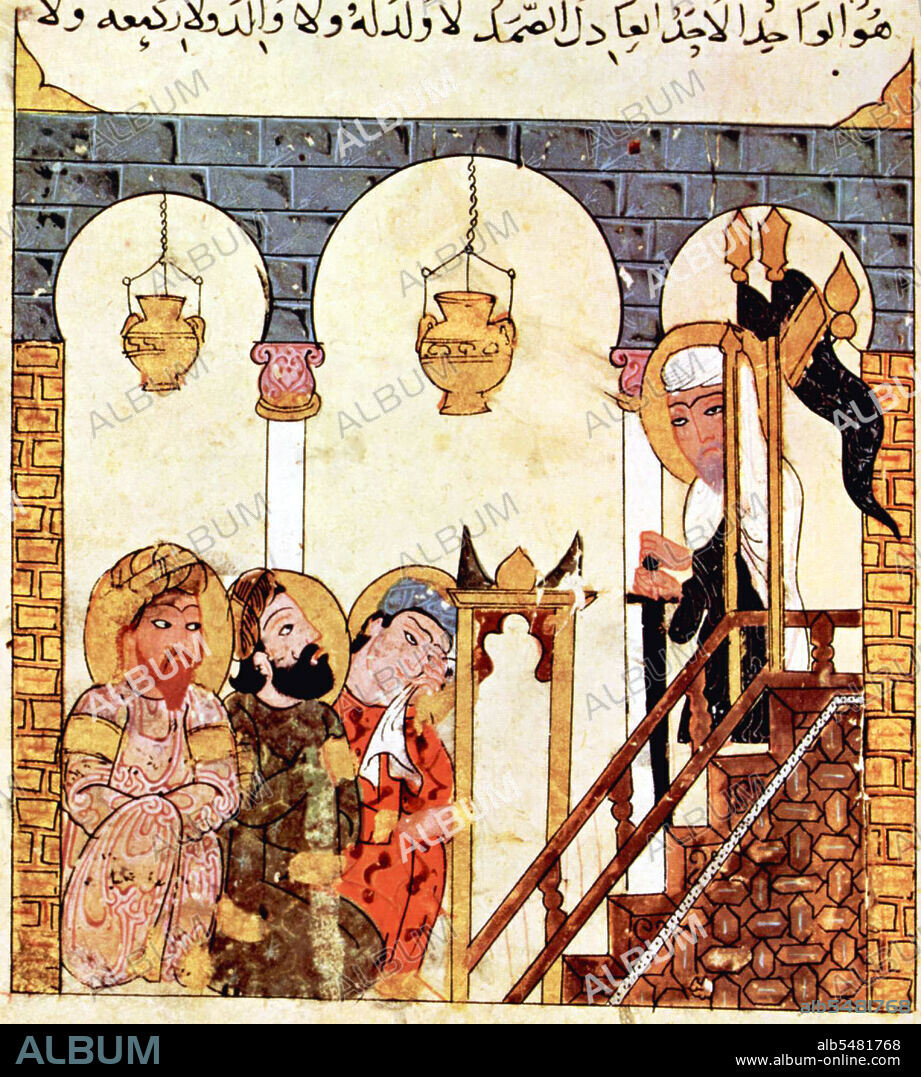alb5481768
Abu-Zayd preaching in the Mosque of Samarkand. Miniature from the 'Maqam' or 'Assembly' of Al-Hariri of Basra, c. 1300.

|
Añadir a otro lightbox |
|
Añadir a otro lightbox |



¿Ya tienes cuenta? Iniciar sesión
¿No tienes cuenta? Regístrate
Compra esta imagen.
Selecciona el uso:

Título:
Abu-Zayd preaching in the Mosque of Samarkand. Miniature from the 'Maqam' or 'Assembly' of Al-Hariri of Basra, c. 1300.
Descripción:
Traducción automática: Maqama (literalmente 'asambleas') es un género literario (originalmente) árabe de prosa rimada con intervalos de poesía en los que la extravagancia retórica es notoria. Se dice que el autor del siglo X, Badi' al-Zaman al-Hamadhani, inventó la forma, que fue ampliada por al-Hariri de Basora en el siglo siguiente. Los maqamat de ambos autores se centran en figuras embaucadoras cuyos vagabundeos y hazañas al hablar ante asambleas de los poderosos son transmitidos por un narrador. Los manuscritos del Maqamat de al-Hariri, anécdotas del pícaro vagabundo Abu Zayd de Saruj, fueron frecuentemente ilustrados con miniaturas.
Maqama (literally 'assemblies') are an (originally) Arabic literary genre of rhymed prose with intervals of poetry in which rhetorical extravagance is conspicuous. The 10th century author Badi' al-Zaman al-Hamadhani is said to have invented the form, which was extended by al-Hariri of Basra in the next century. Both authors' maqamat center on trickster figures whose wanderings and exploits in speaking to assemblies of the powerful are conveyed by a narrator. Manuscripts of al-Hariri's Maqamat, anecdotes of a roguish wanderer Abu Zayd from Saruj, were frequently illustrated with miniatures.
Crédito:
Album / Pictures From History/Universal Images Group
Autorizaciones:
Tamaño imagen:
4000 x 4449 px | 50.9 MB
Tamaño impresión:
33.9 x 37.7 cm | 13.3 x 14.8 in (300 dpi)


 Pinterest
Pinterest Twitter
Twitter Facebook
Facebook Copiar enlace
Copiar enlace Email
Email
